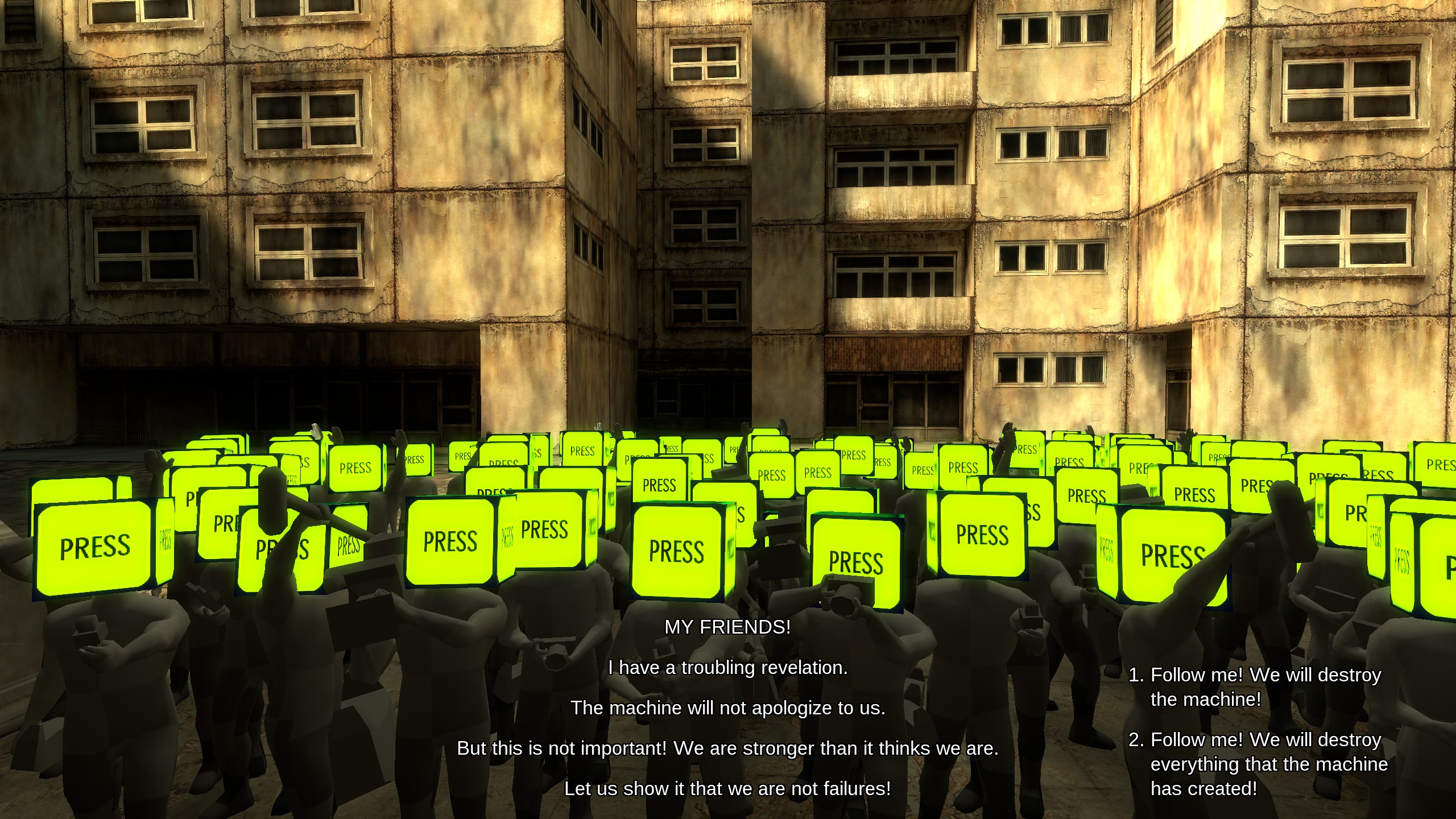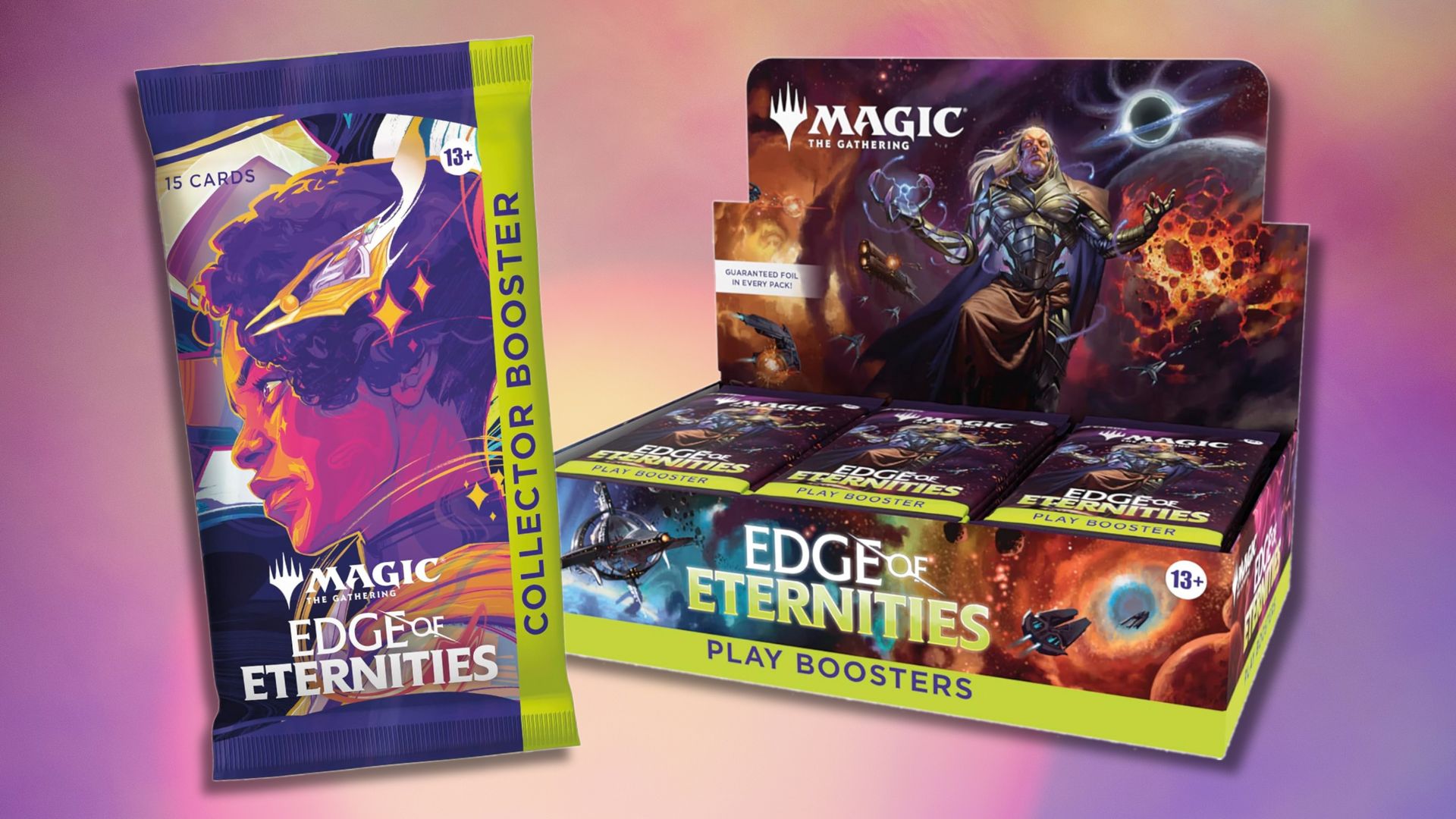
Nearly three years ago, I famously (by which I mean not famously at all) declined to review The Stanley Parable: Ultra Deluxe on this website. Now that the game has been added to PlayStation Plus as a free monthly game, I thought I might take the opportunity not only to once again tell you to play The Stanley Parable: Ultra Deluxe without telling you why, exactly, you should play The Stanley Parable: Ultra Deluxe, but also to tell you to play The Beginner’s Guide, Davey Wreden’s lesser known but no less affecting work.
Like The Stanley Parable, to describe The Beginner’s Guide is in some ways to undo its effectiveness as a work of art. I am not, however, here to simply repeat the same gimmick I employed to write about The Stanley Parable: Ultra Deluxe. That’s a trick you can only do once, and arguably not even that many times. Instead, I’m here to argue that Wreden is an author who clearly approaches each game with a desire to say something different, which makes me wildly excited for this year’s Wanderstop, and sad that so many people seem to have skipped over his sophomore effort — including myself, until very recently.

There’s very little I can say about The Beginner’s Guide that won’t ruin your experience of playing it, but here’s how it begins: with a completely white screen as a narrator announces the following.
Hi there. Thank you very much for playing The Beginner’s Guide. My name is Davey Wreden, I wrote The Stanley Parable, and while that game tells a pretty absurd story, today I’m going to tell you about a series of events that happened between 2008 and 2011. We’re going to look at the games made by a friend of mine named Coda.
The game progresses from here, with the narrator (Wreden) providing commentary on the games you are playing, starting with an odd Counter-Strike map that has random, colorful blocks preventing passage to any larger area and geometry that sticks through the floor. The narrator continues apace whether you move about the space or not, and then, suddenly, you’re shunted off to another game. And that, sad as it is to say, is about as much as I can say about the game’s premise and progression without spoiling its entire effect.
What I will say, however, is that The Beginner’s Guide was not a safe follow-up to The Stanley Parable. While it shares Parable’s love of narration overlaid on top of gameplay, this is where the similarities end. In fact, if you attempt to play The Beginner’s Guide in the way you might play The Stanley Parable — by disobeying the narrator and trying to chart your own path — you will find your instincts thwarted.

Here’s one last thing I will say about the game’s content that I don’t think will spoil the experience: At one point during the game, the narrator comments on the pointlessness of a labyrinth that you the player are struggling to move through, then skips you past it. If, as a player, you choose to turn around and reenter the labyrinth, you are allowed to do so, but progressing through it garners you no new content, no achievements, and no sense of accomplishment. It only garners frustration. This segment occurs early on in the game, signaling to any player who is attempting to approach The Beginner’s Guide as they might Wreden’s last work to stop doing that, to instead appreciate this new game on its own terms. I found this segment not only a helpful signpost for how to approach The Beginner’s Guide, but a helpful shorthand on how Wreden clearly wants us to approach each new piece of art he creates: by setting aside our expectations.
Wanderstop, developed by Ivy Road, a team composed in part of Wreden, the co-creator of Gone Home Karla Zimonja, and Minecraft composer Daniel “C418” Rosenfeld, looks to continue this artistic trajectory. A meditation on burnout housed in the trappings of a cozy game was probably not what anyone was expecting from Wreden next, and yet that’s the joy of every new project from him. They are, each of them, a surprise… Playing The Beginner’s Guide in addition to The Stanley Parable: Ultra Deluxe won’t prepare you for Wanderstop in the way that, say, playing Dark Souls might prepare you for Elden Ring. But it will provide you with a sense of admiration for a writer like Wreden, who could’ve very easily stayed in the comedic metafictional lane for which he is best known, but is instead pushing himself to say something different with every work instead of elaborating on what he’s already done.
There’s nothing wrong, inherently, with variations on a theme. God knows I’m enjoying Hades 2 as much as the rest of you, and should there ever be a Balatro II: Joker’s Paradise, I will be the first in line to play it. But by the same token, much like the player in The Stanley Parable, it can be refreshing to take a left when everyone is expecting you to take a right. The Beginner’s Guide is just that: an unexpected turn that takes you to unexpected ends. Where Wanderstop takes us is anybody’s guess, but I’m ready to be surprised once again.
Source:https://www.polygon.com/opinion/516461/the-beginners-guide-stanley-parable-review














